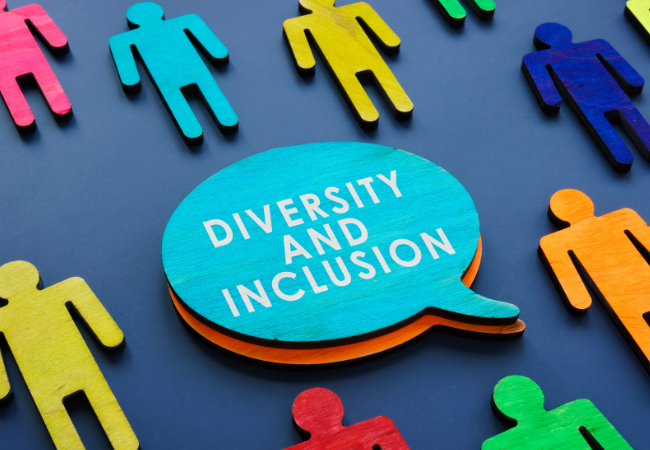The Supreme Court’s ruling last year in the Students for Fair Admissions case rocked the trajectory of diversity, equity and inclusion (DEI) initiatives in the United States. Not only did the Court’s landmark decision deem race-based affirmative action in college admissions unconstitutional, it also ushered in a wave of bills at the state level that are challenging DEI programs in public schools and in the workplace. As a result, employers are facing increasing pushback against programs aimed at leveling the playing field for workers who historically have been underrepresented and underpaid. But that hasn’t stopped many companies from holding steady in their commitment to improving access and increasing opportunities for employees who haven’t always benefited from either.
Key Takeaways
- The Supreme Court’s ruling on affirmative action has created challenges for diversity and inclusion initiatives in the workplace.
- Many companies remain committed to improving access and opportunities for underrepresented and underpaid employees.
- Diversity and inclusion are crucial for driving corporate success through fostering creativity, attracting top talent, and mirroring a diverse customer base.
- The analysis involved comprehensive employee surveys, demographic data analysis, and a rigorous assessment of DEI practices across over 1,300 companies.
- The resulting list showcases industry leaders that have demonstrated a steadfast commitment to building inclusive workforces.
Diversity and Inclusion Driving Corporate Success
In today’s dynamic business landscape, leading employers recognize that fostering a diverse and inclusive workforce is essential for driving organizational success. Companies committed to diversity and inclusion initiatives are not only better positioned to attract and retain top talent, but they also unlock significant advantages in terms of creativity, innovation, and mirroring their diverse customer base.
Fostering Creativity and Innovation
A diverse workforce, comprising individuals from various backgrounds, experiences, and perspectives, cultivates a dynamic environment where new ideas thrive. By embracing inclusive recruitment practices and diverse workforce initiatives, organizations can tap into a rich well of creativity, fostering innovative solutions that resonate with a wide range of stakeholders.
Attracting and Retaining Top Talent
Equitable employment policies and a strong commitment to workplace equity have become increasingly important for top employers seeking to attract and retain the best and brightest talent. Employees, especially from underrepresented groups, are drawn to organizations that demonstrate a genuine dedication to diversity and inclusion through their talent acquisition strategies and inclusive recruitment practices.
Mirroring a Diverse Customer Base
In an increasingly diverse global marketplace, companies that cultivate a diverse workforce that mirrors their customer base are better equipped to understand and cater to the unique needs and preferences of their clientele. This equal opportunity approach not only fosters stronger customer relationships but also positions the organization for long-term corporate success.
The Most Inclusive Companies with the Most Hires in 2024
To determine the leading employers in diversity, equity, and inclusion (DEI) practices, the analysis for this article involved a comprehensive research methodology. This multifaceted approach encompassed both quantitative and qualitative data, providing a detailed assessment of companies’ progress in cultivating inclusive work environments.

Employee Surveys and Demographic Data Analysis
The research process began with an examination of employee survey responses from 2023, as well as data collected over the past three years. Notably, greater weight was given to more recent survey results, with a particular emphasis on feedback from employees who self-identified as belonging to underrepresented groups. This approach ensured that the perspectives of those most impacted by DEI initiatives were centered in the analysis.
Highlighting Industry Leaders in DEI Practices
To complement the survey data, the research team conducted in-depth assessments of more than 1,300 companies, evaluating their DEI practices across a range of metrics. This included examining the presence of employee resource groups, the publication of employee demographic data, the percentage of women in leadership roles, and the companies’ supplier diversity initiatives. By incorporating these multifaceted factors into a comprehensive scoring model, the researchers were able to identify the 500 companies that demonstrated the strongest commitment to diversity and inclusion, workplace equity, and inclusive recruitment practices.
| Company | Industry | Percentage of Women in Leadership | Racial/Ethnic Minority Representation | LGBTQ+ Representation | Disability Representation |
|---|---|---|---|---|---|
| Accenture | Consulting | 45% | 30% | 5% | 4% |
| Cisco Systems | Technology | 35% | 35% | 7% | 3% |
| Eli Lilly and Company | Pharmaceuticals | 40% | 28% | 6% | 5% |
| Lockheed Martin | Aerospace and Defense | 30% | 25% | 4% | 2% |
| Procter & Gamble | Consumer Goods | 50% | 40% | 8% | 6% |
This article has explored the top companies leading the way in diverse and equitable hiring practices, poised for substantial recruitment in 2024. The analysis highlighted the importance of diversity and inclusion in driving corporate success through fostering creativity and innovation, attracting and retaining top talent, and mirroring a diverse customer base. The research methodology involved comprehensive employee surveys, demographic data analysis, and a rigorous assessment of DEI practices across over 1,300 companies.
The resulting list showcased industry leaders that have demonstrated a steadfast commitment to building inclusive workforces, even in the face of legal and political challenges. As employers navigate an evolving landscape, these exemplary organizations provide a roadmap for cultivating more diverse, equitable, and inclusive work environments that unlock greater business outcomes.
The top employers highlighted in this article have not only embraced workplace equity and inclusive recruitment practices, but have also implemented innovative talent acquisition strategies and diverse workforce initiatives that have positioned them as leaders in equal opportunity companies. Their commitment to equitable employment policies serves as an inspiration for organizations seeking to foster a more inclusive and prosperous future in the workplace.
